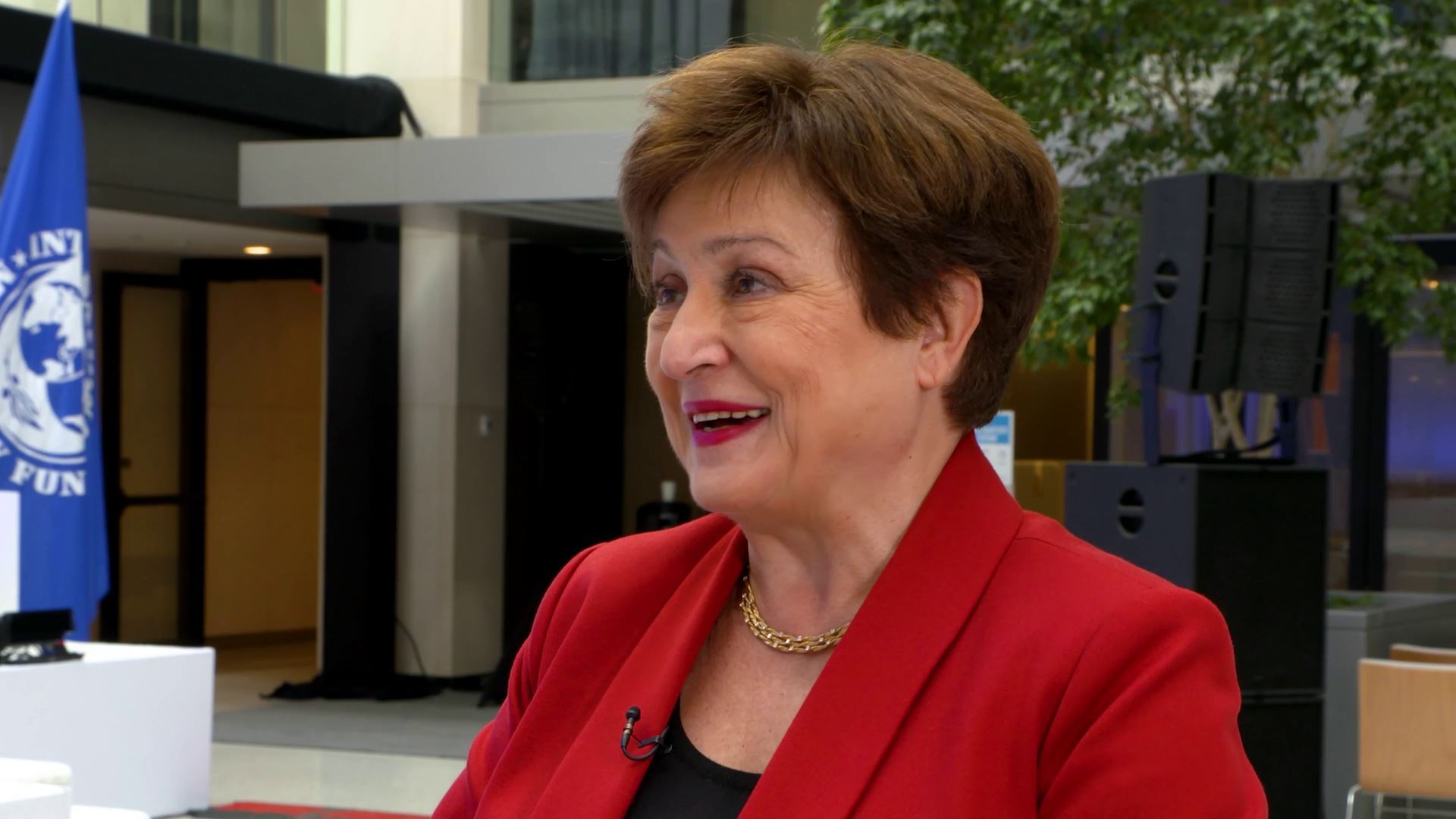Amanda Walker [00:00:00] What is top of your mind going into these Spring Meetings?
MD Georgieva [00:00:03] The membership is coming together at a time of high uncertainty and there are three big topics we would be wrestling with. One: how to make sure that we can sustain price stability, fighting inflation, and also financial stability. Protect the financial system. Two: How to deal with the issue of debt when interest rates are high. Countries that have borrowed to fight the COVID crisis are now faced with the need to handle debt and sometimes to restructure it. Three: how to build the foundation for more robust growth in the future. How to make that future greener and more reliant on the fabulous force of digital technology.
Amanda Walker [00:01:03] And obviously, these meetings are about everybody coming together. And I'm interested in something that you said this morning in conversation with David Malpass. You said that 'the ropes that tie us together have become weaker.' Can you tell me more about that?
MD Georgieva [00:01:17] Well, what we have seen is. The forces of fragmentation becoming stronger. They are they have two big drivers, one, the horrible war in Ukraine. It has not only been a source of tremendous pain for people in the country, but it has also added to geopolitical tensions, to the recognition that came from COVID. It came from the impact of the war that no more.
[00:01:52] We can make decisions for allocation of supply chains only on the basis of cost, security of supply matters, and the fact that globalization did not benefit everyone has created a pushback on something that actually has made the world richer and more secure.
[00:02:15] So when we look at the years ahead, it is paramount to recognize that, yes, we have to be more careful about the security of supply chains. Yes, the national security interests are meaningful. Yes. The war in Ukraine put an end to the peace dividend that we have enjoyed for three decades. We cannot take peace anymore for granted.
[00:02:48] But we can move through this. By still keeping the fabric of the world economy integrated. We have calculated that the cost of fragmentation just in the area of trade can go all the way up to 7% of global GDP. This is like wiping out Japan and Germany at the same time for the world economy unaffordable. So we have to work hard to still address these issues that have come over the last years, but do it as much as possible together. And that is the beauty of this place. This is where we bring 190 countries to work together for a better future for everyone.
Amanda Walker [00:03:40] Well, that's what's going to ask you. Finally, I know how busy you are, but what's your message to all these delegates who are arriving in Washington, D.C.? What can they hope to achieve and see happen this week.
MD Georgieva [00:03:51] When there is a will, there is a way. We can take decisions together that reflect different perspectives and we can do what our founding fathers did in the midst of a war in 1944; build solidarity because a world without it is a poorer and less secure world.
[00:04:22] I also beg everybody to pay attention that over the last years we face a dangerous divergence. The better off countries have a chance to help their businesses and people. The poorer countries are falling further behind. So one of the messages they have is do show empathy for people in countries that need help to cope with the challenges we face.
See the full schedule of events at IMF.org

